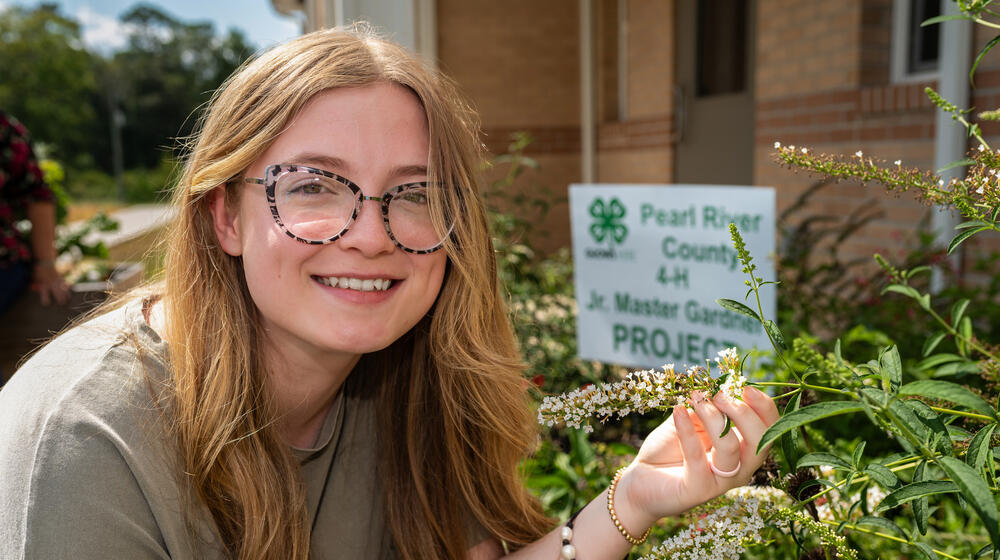Extension Matters
Volume 11 Number 3
Digging in the Dirt
Extension awakens new hobby, volunteer spirit for 4-H’er
Story by Susan Collins-Smith | Photos by Kevin Hudson and Submitted
Presley Meador joined 4-H at 6 years old.
Now, at 20, she describes her membership in the Mississippi State University Extension Service youth development organization as one of the best things she could have done.
“In school, I was very shy. When I came to the 4-H program, I made friends, and I’m still friends with those same people. It was good for me socially, and it helped me grow into a more confident person,” explains Meador, a former Pearl River County 4-H’er.
4-H is also where she found belonging—a place where she could connect with others and participate in projects she enjoyed. She began her journey attending weeklong summer sewing camps. Once she learned more about different programs the organization offered, she began going to sleep-away summer camps, participating in culinary projects, and contributing to 4-H-sponsored community projects.
One of those community projects is the 4-H Junior Master Gardener pollinator garden at the Poplarville City Park. The garden was an idea 4-H volunteer Roxann Gort had after recruiting a group of young people for a backyard gardening class.
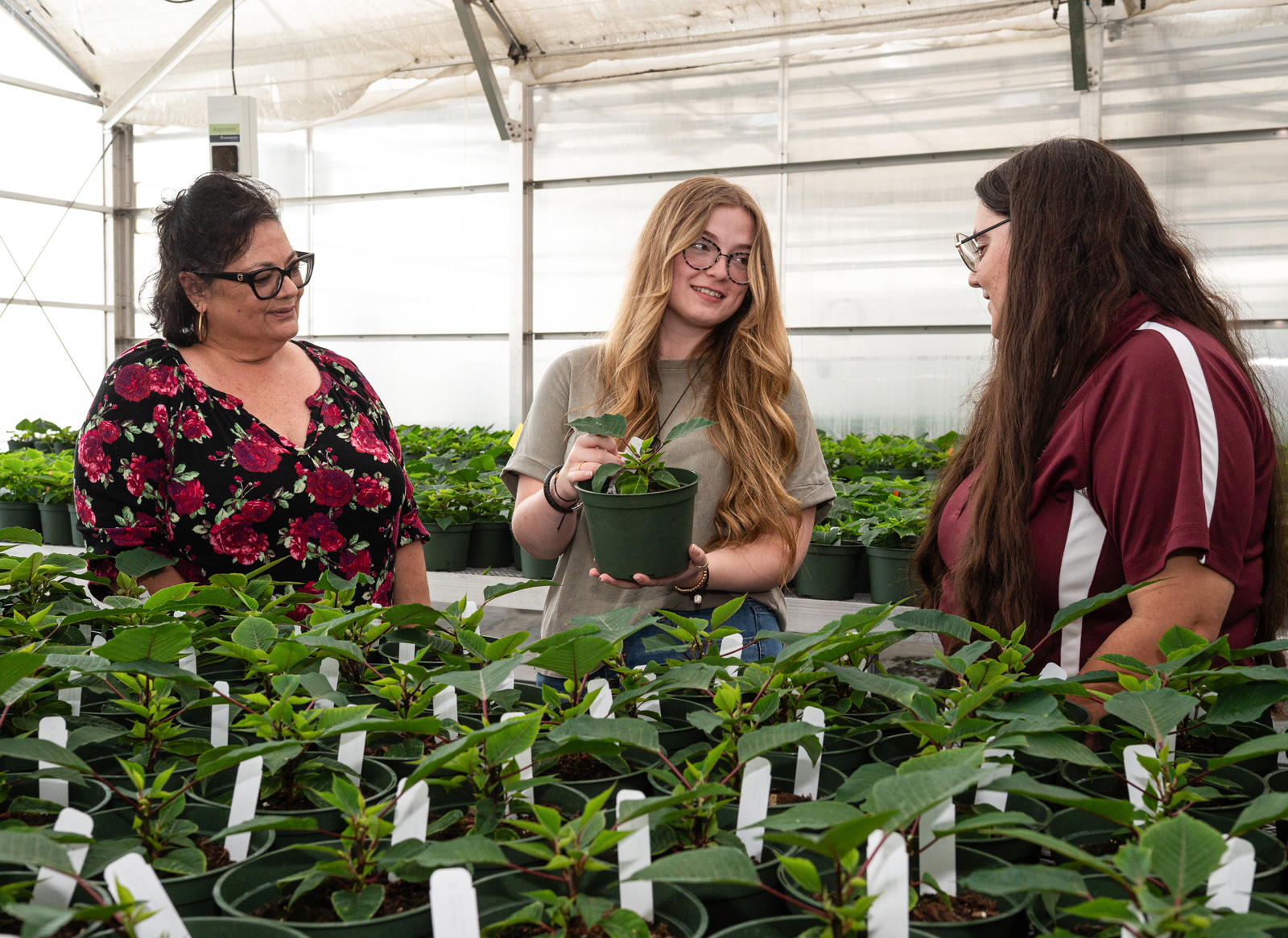
“We learned about the science of plants and growing things, and they loved it,” Gort remembers. “I wanted to give them more than just classroom instruction. The pollinator garden was part of our hands-on learning.
“We loved getting to fill in that space. Everyone was involved—4-H kids and their moms. The kids planted the whole thing and were involved in the planning.”
While the idea bloomed from that initial gardening class and was spearheaded by Gort and her 4-H Junior Master Gardener group, the garden is a collaborative effort among 4-H Junior Master Gardener members, Master Gardener volunteers, 4-H volunteers, 4-H parents, Pearl River County, the City of Poplarville, and other civic organizations. Funding was provided by 4-H fundraisers, local donations, and community grants, including Coast Electric’s Operation Round-Up grant program in partnership with the Gulf Coast Community Foundation.
At more than 1,000 square feet, the four-year-old garden provides a bounty of plants beneficial to pollinators and an outdoor area for learning. It’s also a certified Monarch Waystation, which helps support butterfly species’ migration and reproduction. The garden has been the backdrop for thousands of local and non-local visitors and programs aimed at educating people about how to provide the right plants for pollinators in their own landscapes.
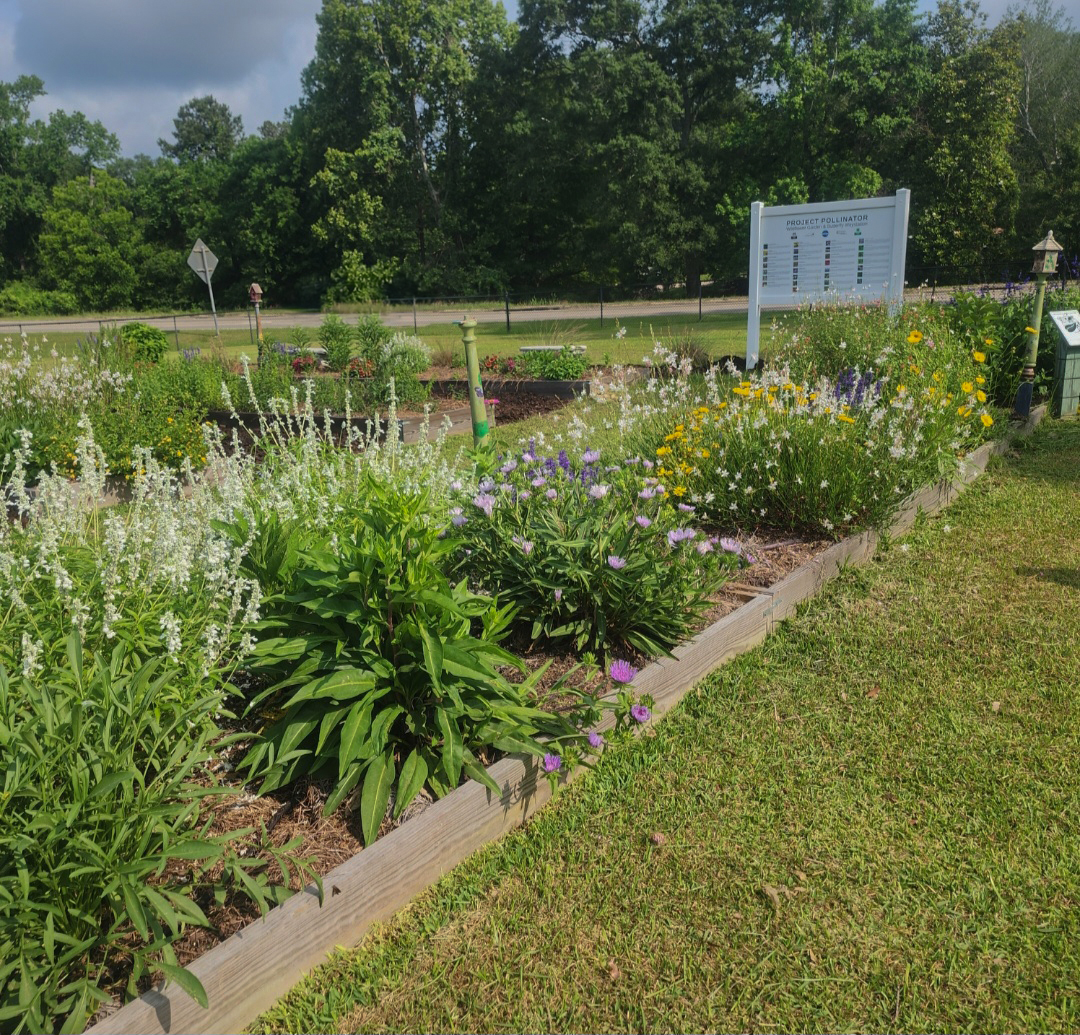
Signage in the garden lists the plants and explains how butterflies, bees, and other pollinators benefit the environment. Classes have also been held there.
“Pat Drackett, the director of the MSU Crosby Arboretum, has taught a class at the garden to help people understand the role of pollinators in our ecosystem and how everyone can support them,” Gort explains. “If you just have a small patio or balcony, you can still plant a few things that pollinators love and benefit from. It doesn’t have to be a big garden or space.”
The pollinator garden has been wildly successful and recognized for its contributions to both the pollinator community and Poplarville community. Early this year, it earned the Keep Mississippi Beautiful Wildflower Trails of Mississippi Award for its contribution to pollinator health and education as well as beautification. This summer, the Mississippi Municipal League recognized the garden with its Excellence Award in the youth in action category.
“It’s very fulfilling to see it grow and make an impact,” Meador says. “I’m so proud that Poplarville has something like this to enjoy. I drive by it every day on my way to school. I enjoy getting to look at it, and I know other people enjoy it too.”
That same pride and enjoyment of the project is something Emma Clement, Extension 4-H agent in Pearl River County, sees in all the 4-H members who’ve worked on the project.
“Whenever I talk to any of them about it, they mention how cool it is to drive past it and know that they worked to make that project a reality. It's always rewarding to get to see your 4-Hers that you've been working with take pride in something they worked really hard on,” Clement says.
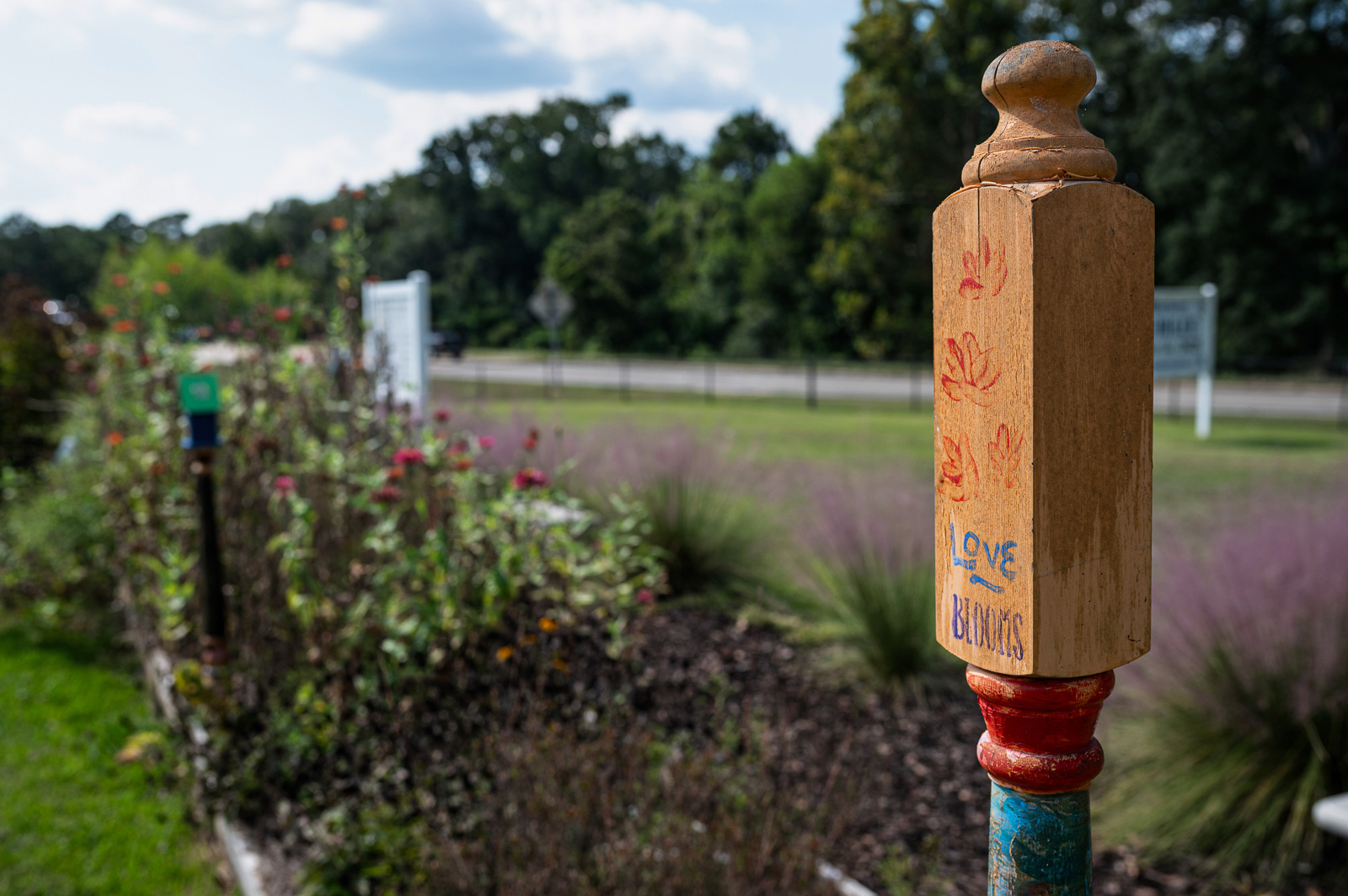
Believe it or not, plants and gardening weren’t always something Meador was interested in.
“When I was younger, my grandparents gardened, and they wanted to teach me about gardening. But I wasn’t really interested at the time,” she says.
That changed, however, when she went to one of Gort’s classes.
“I liked the meetings and the people,” says Meador, who is pursuing a degree in accounting technology. “The classes on the science of plants was really interesting. As I learned more about it and got more interested, I started doing my own plant experiments.
“Now, my mom gets mad at me because my plants take up the whole back porch,” she laughs. “I like to do my own plant experiments. I just did a hydro propagation test with some different plants. The hoyas just melted, but the others I tried did well.”
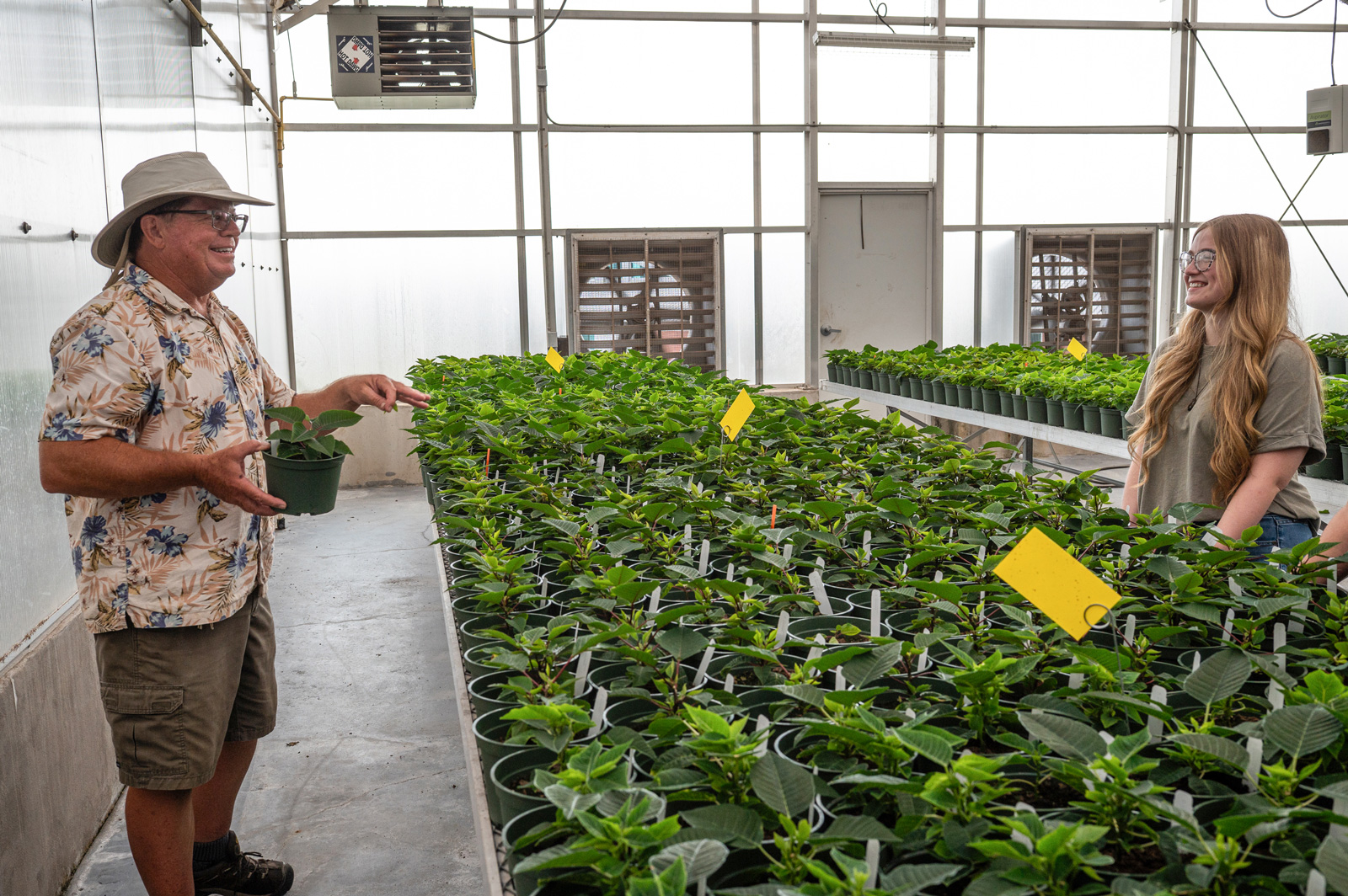
Choosing, planting, and nurturing plants is something Meador says grounds her.
“Both sets of my grandparents gardened. My papaw Henry had a mini orchard where he grew muscadines and satsumas. He would always take us there,” she remembers. “Gardening is a family-oriented activity for me. It’s nostalgic, it reminds me of when we’d do those things with my grandparents. It’s therapeutic. I feel closer to my people when I garden.”
Gort says part of the garden’s success is the community-wide support it has gotten.
“The garden is a great educational tool while being beautiful to look at, and I think our community appreciates that. We’ve gotten a lot of support from our community. Just one example is when we put in the brick border around the beds.
“I had 325 bricks that we needed to install, and I just thought, ‘How are we going to do this?’ But we had over 20 people from the community show up to help us, including the police department. We had it all done in one hour. Local restaurants donated food and drinks for us that day. It was wonderful. It’s been that way all along. We’ve had great support.”
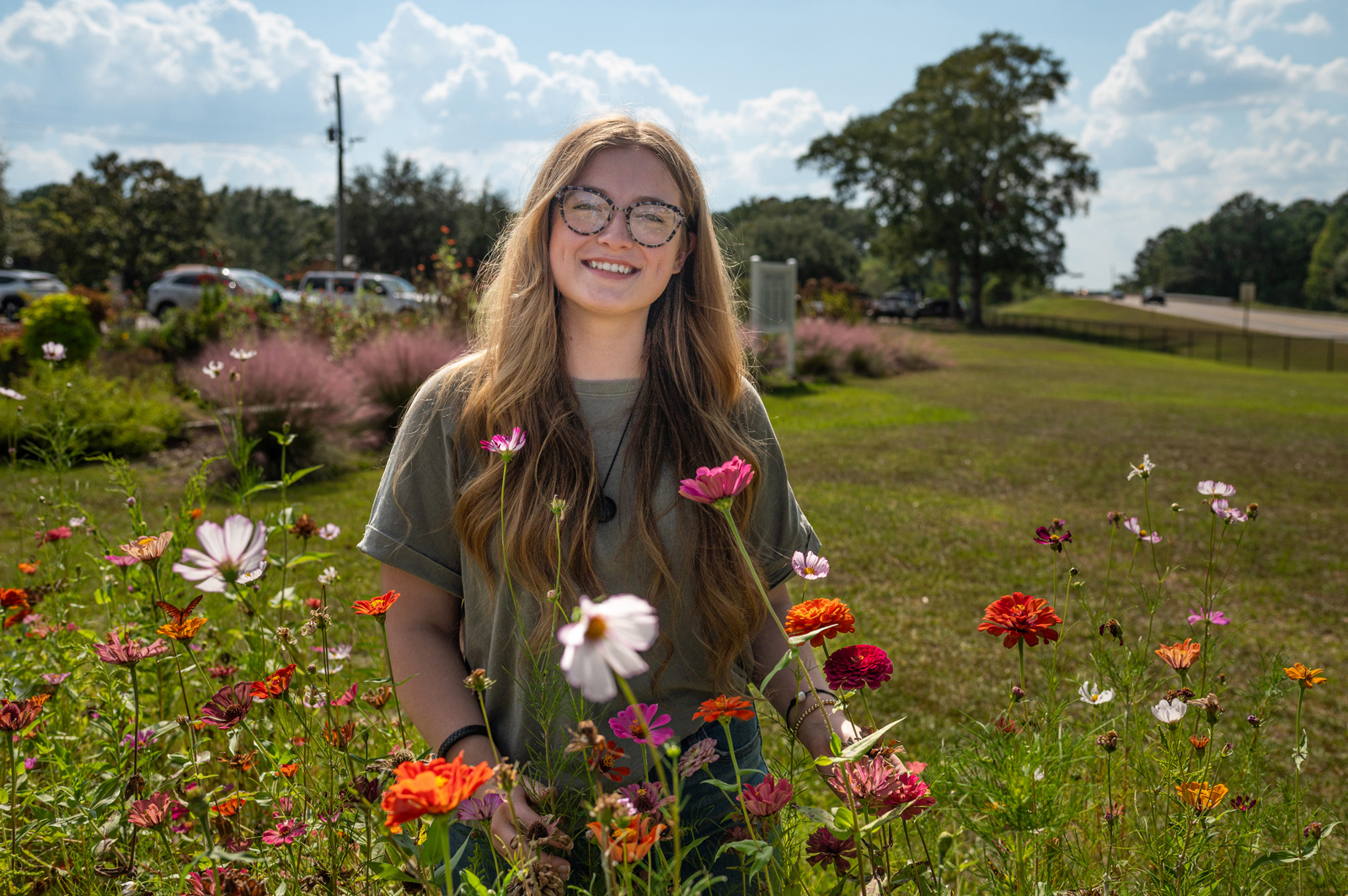
Clement said projects like this are important because they bring the community together.
“Many people go to that park and visit the garden even if they’re not in 4-H. That’s the best part about a project like this, getting to see others outside of our program enjoy it just as much as we do,” Clement explains.
Although Meador is no longer in 4-H, she has remained involved with Gort’s classes as a volunteer herself. She recently taught a class on making a chunky throw blanket. She also plans to take the Master Gardener certification course.
“One of the reasons I choose the accounting technology program is the flexibility I could have in the future with my career,” she explains. “I want to have the ability to participate in projects that improve the community.
“I would love to stay involved with Extension in the future. 4-H was something I needed, and I would love to be able to provide that same opportunity for other young people in the community.”
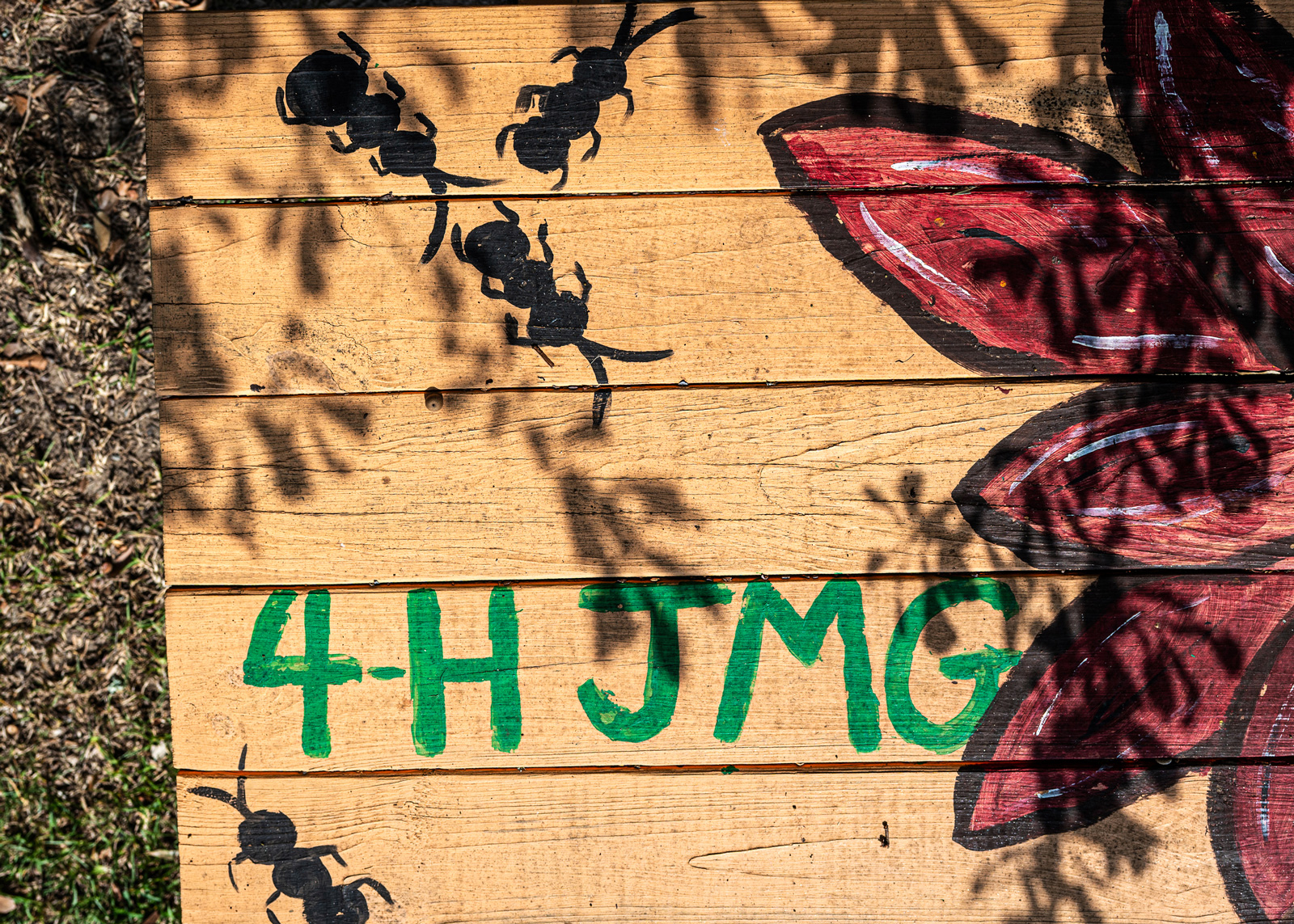
Authors
-
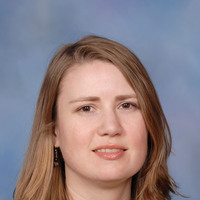 Extension Associate II
Extension Associate II- Agricultural Communications
